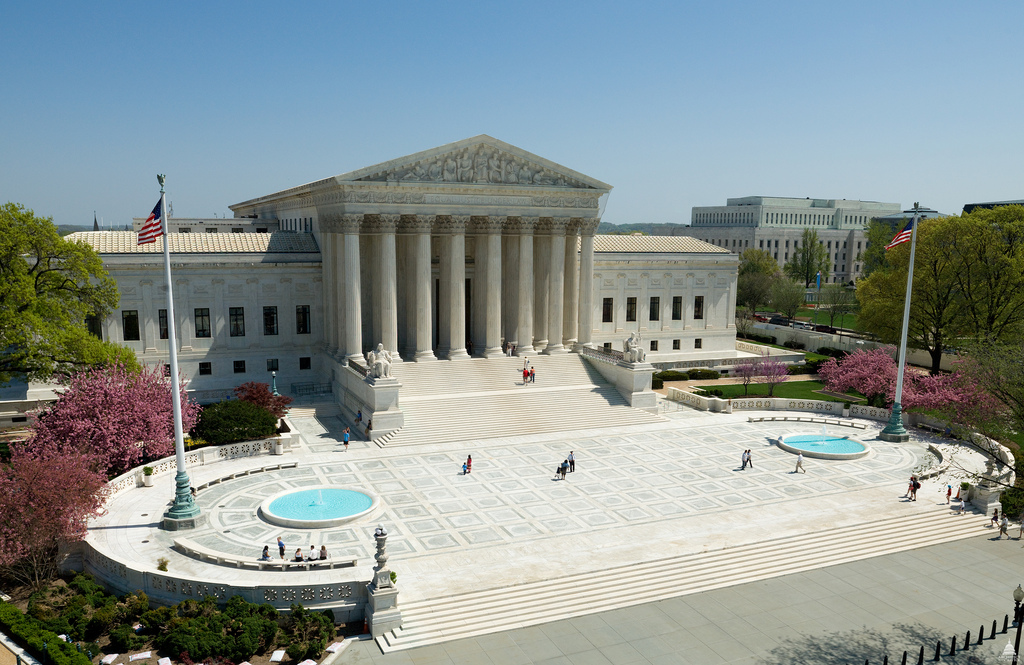US Supreme Court – Salinas v. Texas
When Can Silence Be Used Against You?
In the realm of criminal law, the Fifth Amendment to the United States Constitution grants individuals critical protections, including the right to remain silent and the right against self-incrimination. These rights are fundamental shields against potential abuses by law enforcement and the legal system.
Understanding Your Fifth Amendment Rights
The Fifth Amendment ensures that no person shall be compelled to be a witness against themselves in a criminal case. This right is commonly invoked during police interrogations and legal proceedings to prevent individuals from inadvertently providing evidence that could be used against them.
Legal Development
The Court held that merely remaining silent in response to police questioning is not sufficient to invoke the privilege against self-incrimination. Instead, individuals must expressly assert their Fifth Amendment rights in order to receive protection.
In the case of Salinas v Texas (decided June 17, 2013), the United States Supreme Court made a significant ruling concerning the invocation of the Fifth Amendment. The Court held that merely remaining silent in response to police questioning is not sufficient to invoke the privilege against self-incrimination. Instead, individuals must expressly assert their Fifth Amendment rights in order to receive protection. Failure to do so may result in the prosecution using a person’s silence against them in court.
Implications for Individuals
This ruling underscores the importance of understanding and actively asserting one’s rights under the Fifth Amendment. If you are in a situation where you may be questioned by law enforcement and wish to invoke your right to remain silent, it is crucial to clearly state that you are asserting your Fifth Amendment privilege. This simple declaration can help protect you from potential legal consequences that may arise from remaining silent without explicitly claiming this constitutional right.
Legal Counsel and Your Rights
When facing legal challenges, particularly in criminal cases, it is advisable to seek legal counsel immediately. A qualified attorney can provide guidance on how to navigate interactions with law enforcement while safeguarding your constitutional rights. If you are subpoenaed to testify, an attorney can also manage the invocation of your Fifth Amendment rights on your behalf, ensuring that your interests are protected throughout the legal process.
Conclusion
In conclusion, while the Fifth Amendment provides powerful protections against self-incrimination, recent legal interpretations necessitate proactive measures to invoke these rights effectively. Merely remaining silent may no longer suffice to protect oneself from potential legal repercussions. Therefore, understanding your rights and seeking competent legal representation are crucial steps in safeguarding your interests under the Fifth Amendment.
For expert legal assistance in navigating criminal law matters and protecting your constitutional rights, contact Komorn Law PLLC today. Our dedicated team is committed to advocating for our clients and ensuring that their rights are upheld throughout the legal process.
CONSTITUTION OF MICHIGAN OF 1963
§ 17 Self-incrimination; due process of law; fair treatment at investigations.
Sec. 17.
History: Const. 1963, Art. I, § 17, Eff. Jan. 1, 1964
Former Constitution: See Const. 1908, Art. II, § 16.
Recent

Criminal Law FAQs – Theft Crimes
Michigan Criminal Laws FAQs Theft CrimesAccording to Michigan State Law (Michigan Compiled Laws - MCL), Theft Crimes generally involve the unlawful taking of someone else's property with the intent to deprive them of it, either permanently or for a significant period....

Criminal Law FAQs – Domestic Violence
Michigan Criminal Laws FAQs Domestic ViolenceAccording to Michigan State Law, Domestic Violence is not a standalone criminal offense but rather a designation applied to certain crimes when the victim is a "spouse or former spouse, an individual with whom the person...
Other Articles
US Supreme Court – knock-and-announce rule
SUPREME COURT OF THE UNITED STATES BOOKER T. HUDSON, Jr., PETITIONER v. MICHIGAN [June 15, 2006] Justice Scalia delivered the opinion of the Court, except as to Part IV. We decide whether violation of the “knock-and-announce” rule requires the suppression of...
Planet Green Trees Radio Episode 149-MSC People v. Koon
The best resource for everything related to Michigan medical marijuana with your host Attorney Michael Komorn. Live every Thursday evening from 8 -10 pm eastern time. By Michael Komorn The Michigan Supreme Court issued a unanimous opinion making a finding that...
Arizona Supreme Court Sets Example for Michigan, Other Medical Marihuana States
This case has been updated: See Arizona Sheriff Refuses to Hand Over Pot July 10, 2013 By Michael Komorn Hats off and a thumbs up to the Arizona Supreme Court letting stand a trial court’s ruling that the County Sheriff of Yuma County, Arizona must return the medical...















